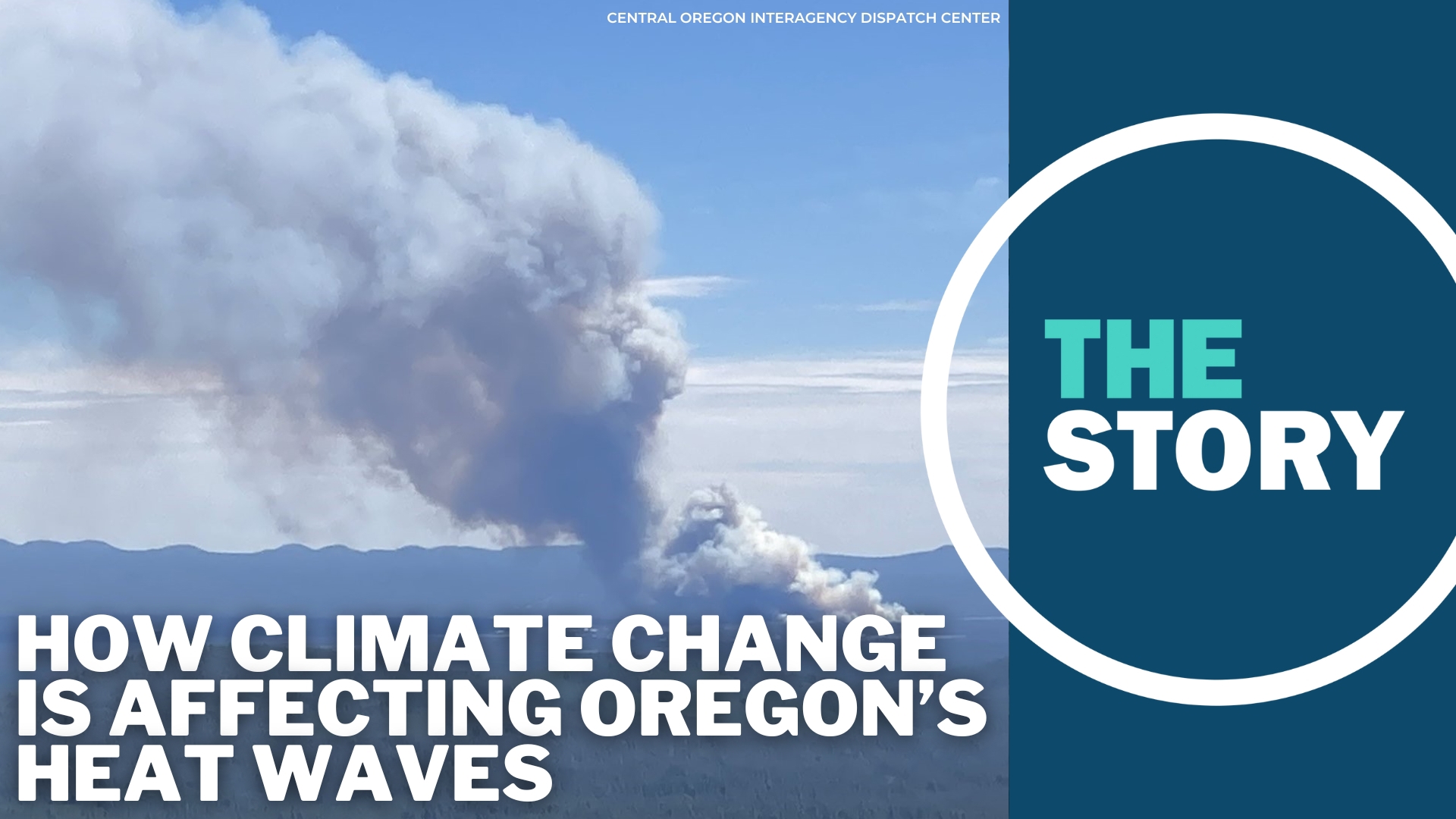PORTLAND, Ore. —
If you think the weather in Oregon over the next week is going to be too hot, Larry O'Neill has some bad news for you.
"Right now, this is probably the among the coolest climates we'll be in at the rate we're going," he said.
O'Neill is the state climatologist for Oregon, and he said climate change is amplifying heat waves in the state and across the globe.
"Heat waves are a natural part of our climate system, but when they do occur, now they're occurring in a warmer baseline," he said. "Any heat wave that we get, you can kind of think about it as being about 3 degrees Fahrenheit more intense than it would have been had we not been changing the climate."
Climate change has made extreme heat hotter, longer and more frequent.
There's no hard and fast definition of a heat wave, but regardless of what's used as a measuring stick, warm temperatures have been increasing in Oregon.
"The number of days over 90 degrees or the number of days over 100 degrees, whichever way you parse it, these days are happening much more frequently, especially over the last 10 years," O'Neill said.
According to records from the National Weather Service, between 1938 and 2014, Portland saw an average of 12 days per year with temperatures over 90 degrees.
Between 2014 and 2023, that number nearly doubled to an average of 23 days per year.
Over the past 86 years, Portland has recorded 105 days with temperatures over 100 degrees, but 16 of those days have come in just the last four years.
Portland’s current stretch of extreme heat is expected to be notable not just for its temperatures, but for its duration, with forecasts calling for five days of heat at or above 100 degrees.
That type of heat, over that amount of time, can pose serious health risks to vulnerable residents, O'Neill said.
"The health risks basically are much greater for each consecutive day of the heat wave," he said.
And overnight lows will offer little relief, with temperatures expected to barely dip below 70 degrees.
"Not being able to cool down at night just puts that much more physiological stress on your body," O'Neill said.
Carbon dioxide, the primary driver of climate change, can take hundreds of years to degrade in the atmosphere, so the planet is already guaranteed to warm for years to come.
"Even if we were to magically stop emitting greenhouse gases at the rate we're doing so now, it will still take 10 to 20 years for temperatures to cool down enough that it's no longer an existential threat," O'Neill said.
O'Neill said that’s why it’s important to think about acting on climate change as a two-pronged approach.
On one hand, society needs to adapt to the conditions we've already created.
That includes things like increasing access to air conditioning and opening cooling centers when the heat gets dangerous, but it also includes tackling more far-reaching, thornier issues.
"We have to deal with the fact that the increased temperatures are drying out the landscape," he said. "It's increasing the instance of drought and wildfires and poor water quality, water supply issues throughout the world, but especially in Oregon."
On the other side of the coin is mitigation: working to cut, and eventually eliminate, the greenhouse gas emissions that are the root cause of climate change.
If we don’t, O'Neill said, the future looks to be very hot.
"Climate models that suggest that towards the end of the century, depending on exactly how much greenhouse gases we emit most days during the summer will be over 90 degrees," he said. "Throughout the whole Willamette Valley."

